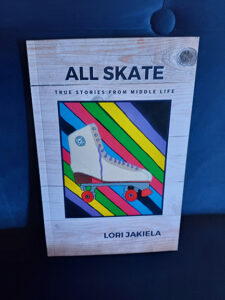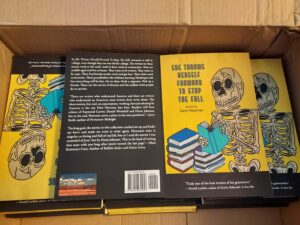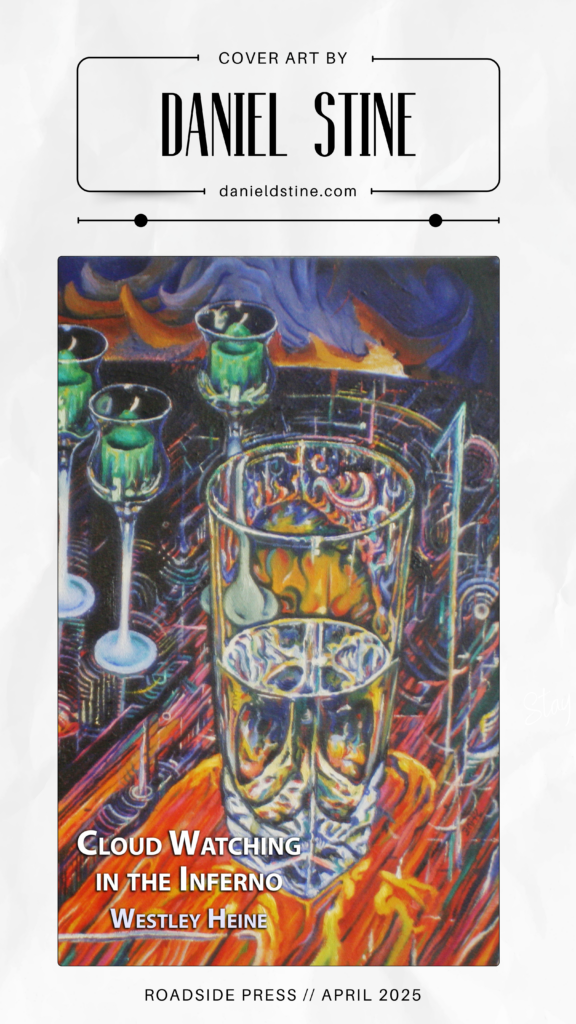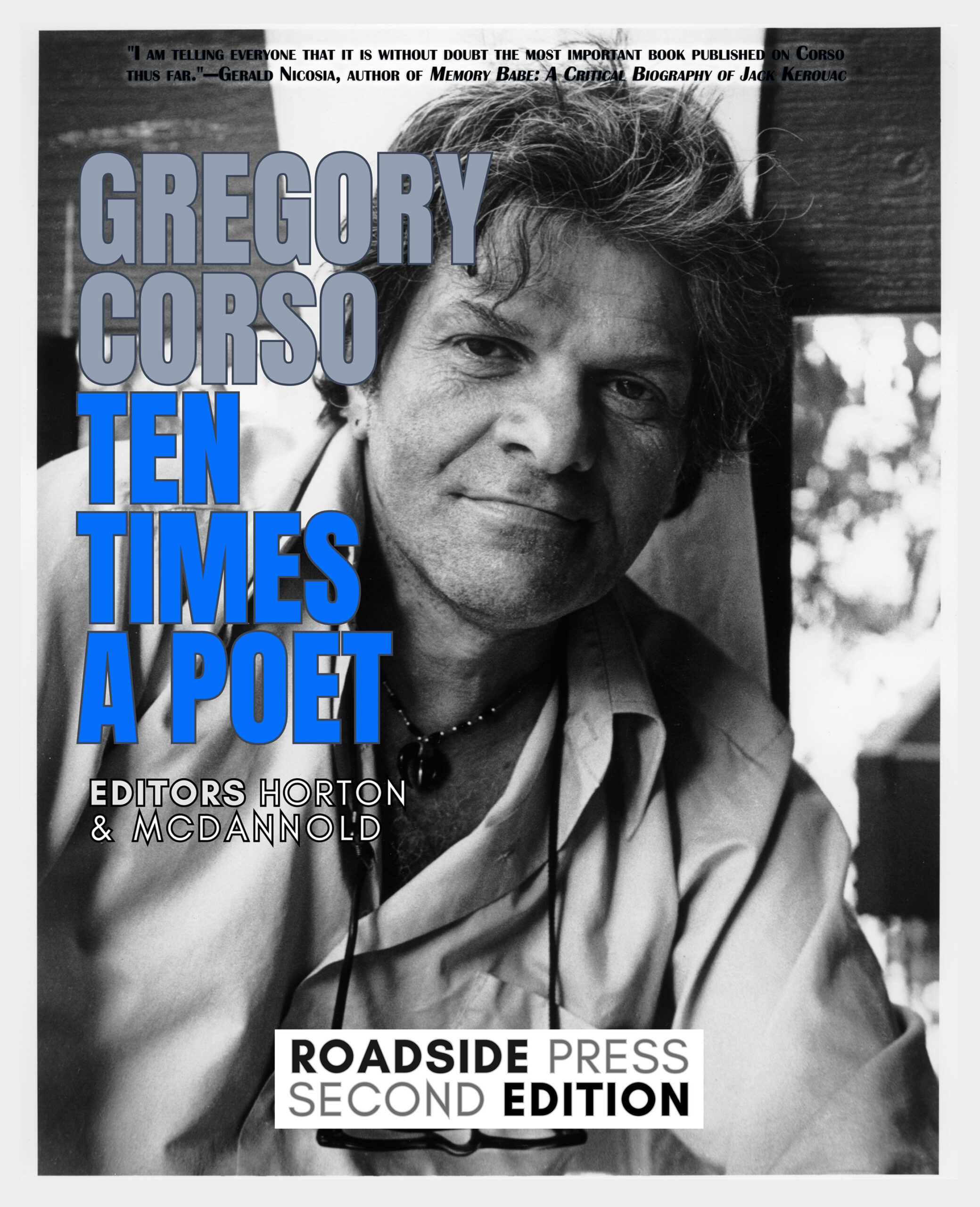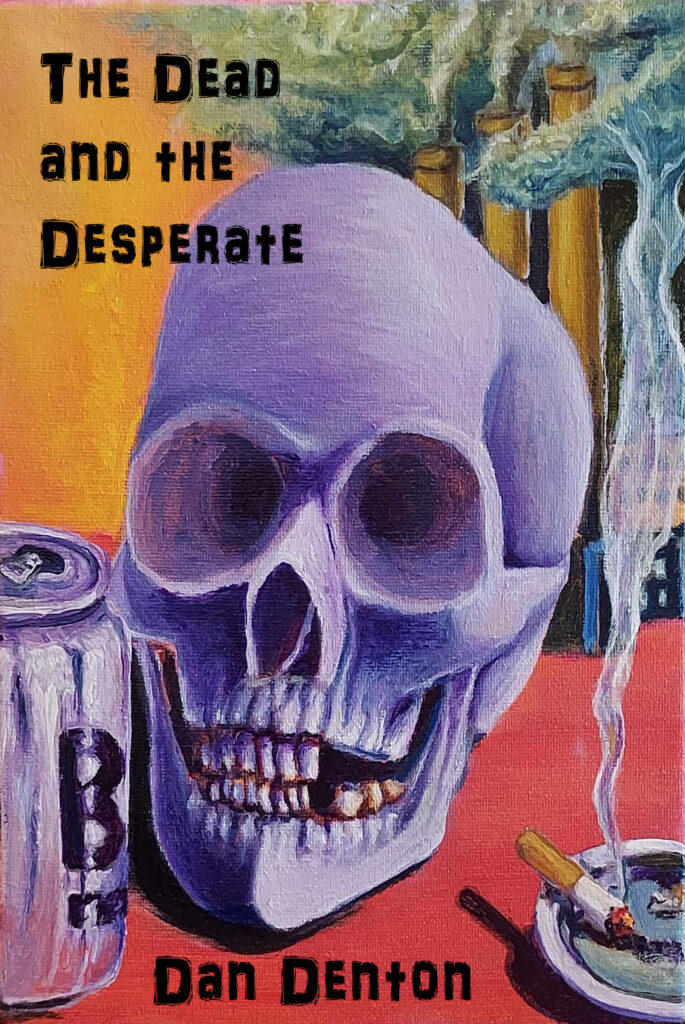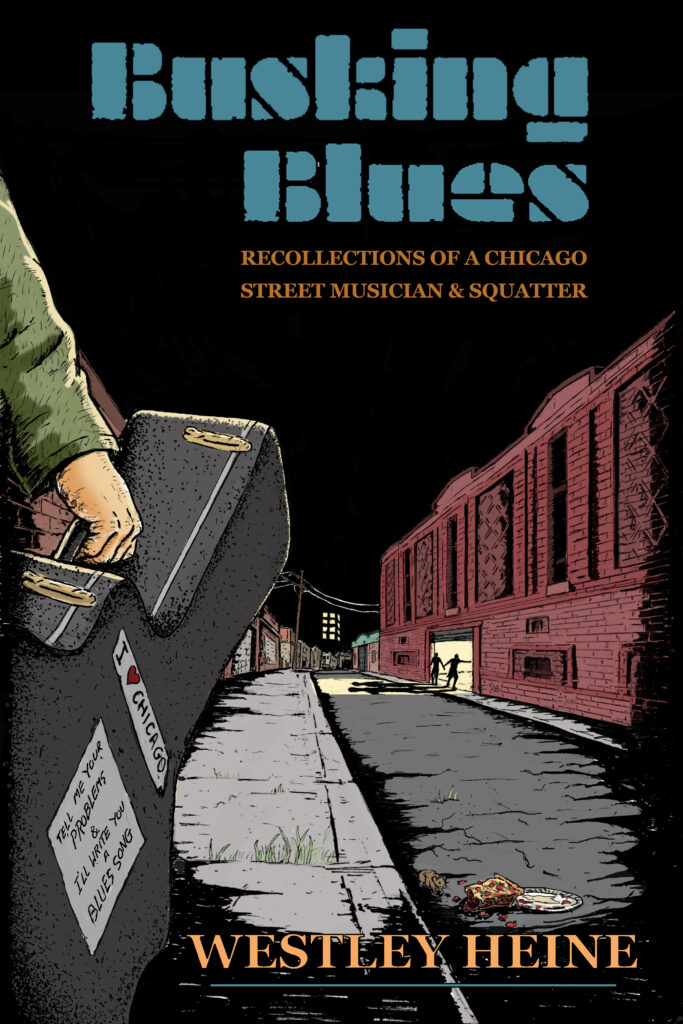“It’s been said of my people, the Jews, that we are endlessly fascinated by all things concerning the Jews. It’s that way with me. I am forever fascinated by all things concerning me.” This, from the story “What a Wonderful World,” hints at a hubris that does not, in fact, ever rear its head in the stories in Night Bird Flying. Rather these stories are less about the author than they are about the people and places that have been important in the author’s life. Whether describing the death of a parent or friend, or recounting details of a drunken sexcapade, the speaker in these stories is straightforward and unflinchingly open. While the stories are primarily told in first-person, it is unclear which are memoir, which fiction, and which might be some mélange of the two.

From what one might already know about Danny Shot (full disclosure: I do know him personally,) and/or what can easily be found out online, much of this book is based on true events in the author’s life. So what do we do with the bits which are not, or which fall somewhere on a spectrum between memoir and fiction? It is unclear whether the author has purposefully backed away from sharing certain areas, or whether some essays were simply written/published at different times in the author’s career, and their perspective was not edited when compiling this full manuscript, which is primarily autobiographical.
The first piece in the book, “Ich bin ein New Yorker,” discusses the author’s conflicting identity as someone currently from New Jersey rather than New York—or someone who is formerly from New York, or as someone who is simultaneously from both New Jersey and New York (“dual citizenship” the author describes). We are where we live. We are all of the places we have lived. So who are we, if folks around us identify us differently than we see ourselves? “Even though I was born in the Bronx, and lived a number of years in the East Village, because I have committed the unpardonable sin of living much of my life in New Jersey, I will never be accepted as a New Yorker.”
The second piece, “72 Scars,” also autobiographical, describes in horrifying detail various physical and emotional injuries inflicted upon the author’s body during a particular pivotal timeframe in his adolescence. “There were at least five types of scars I accumulated during the 1972-73 year.” Scar II, was a serious case of acne which often became infected, needing various medical interventions, recounted with striking detail and humility. Scar II and III—a broken nose and heel surgery. Scar IV describes a spirit broken over the death of a friend, and well a thumb broken after punching a door in grief. Scar V was the result of witnessing his father’s death: “…all I heard was a rattling sound, sort of like snoring but coming from his throat. His eyes were open but unseeing and his skin was cold.” Shot tells us willingly, and somewhat matter-of-factly about these incidents—their proximity, piling onto one another in layers of physical and emotional pain—then ends the chapter with the simple statement, “It’s gonna be okay.” He may be talking to us here, or perhaps to himself.
Then comes the third story, “And We Drown…,” still written in the first-person, but with a more typical short-story structure, and a narrator whose voice feels distinct from the author of the prior stories. Though the narrator also hails from Dumont, NJ, like Shot, he is never called by name by any of the other characters in the story, so it is unclear whether the story is autobiographical. Somehow I held the story at arms-length, wondering who is telling me this story, and why? After the intimacy and immediacy of the first two stories, I found it difficult to connect with the shenanigans of unknown youngsters in this one.
Next in “What a Wonderful World,” we’re pulled back into a real-life story in which the author, “being uncharacteristically candid,” in direct conversation with the reader, describes a tumultuous relationship with a former lover who wrestled with addiction. “I’ll let you in on a personal secret,” he says. “I really don’t like to talk about this one. I guess I have to because I brought you along this far.” Not only is the author bearing his soul in this tragic tale, but he is acutely aware of the act of bearing it, and he makes sure we readers are, too—like someone staring deep into your eyes as they kiss you or punch you in the gut.
As we catch our breaths, the story “Big Dick” protrudes right from the middle of the book. Obviously, a piece of fiction, the story makes itself as conspicuous as an erection in 7th-grade phys-ed class—it’s even the only title in all-caps in the table of contents. Perhaps its intent was as comic relief after the heart-wrenching material before it, and the pathos after in “A South Bronx Tale.” Perhaps the author was providing a moment to recuperate—either for the reader or for himself. But somehow the untruth of this story feels unwelcome, as if a stranger pulled up a seat to my Thanksgiving dinner table.
The assumption is that “Ginsberg Lives,” “Mom,” “Maestro,” and “Death of a Poet” are autobiographical, rounding out the book with heartbreak, nostalgia, and personal reflection. “I understand that it’s not a tragedy when the parent of a middle-aged man dies. Yet, when it comes to my mom, I still feel like a little boy.” I became more engrossed in these stories than “And We Drown…” or “Big Dick,” knowing for sure that they are “real.” I’m not sure why the notion of “reality” mattered to me while reading this book, and whether it would matter in the same way if I did not know Danny Shot personally to a degree. Perhaps I am drawn to the open wound of confession, the humanity in the hurt.
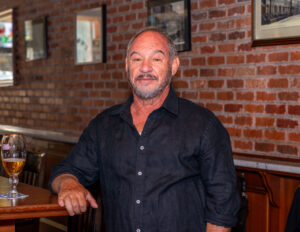
But true or not, the narrators in all of the book’s stories are unconcerned with currying favor with the reader or knighting themselves within the kingdom of Literature—unlike many memoirs which cast their authors in only the most favorable light. Instead, they are satisfied to tell their stories for the record, to commemorate their time on their streets, in their homes, with friends and family, in their schools and neighborhoods. Like Brighton Beach Memoirs, Sex and the City, or A Tree Grows in Brooklyn, the landscapes of Night Bird Flying—mainly New Jersey and New York City—are inescapable backdrops that flavor the narratives and situate the characters in place and time. However, there are no rose-colored glasses to be found, no dousing the reader with condescending waves of Wisdom. There are just unpretentious portrayals of moments in a particular life, in a particular region of the US, at a particular time. The stories say: this is who I am, who I have been, where I have been, and these are the folks I’ve cared for along the way.
Ohio born and raised, Kerry Trautman is a founder of ToledoPoet.com and the “Toledo Poetry Museum” page on Facebook, which promote Northwest Ohio poetry. Her work has appeared in dozens of anthologies and journals, including Slippery Elm, Free State Review, Mock Turtle Zine, Paper & Ink, Disappointed Housewife, Limp Wrist, Midwestern Gothic, and Gasconade Review. Kerry’s books are Things That Come in Boxes (King Craft Press 2012,) To Have Hoped (Finishing Line Press 2015,) Artifacts (NightBallet Press 2017,) To be Nonchalantly Alive (Kelsay Books 2020,) and Marilyn: Self-Portrait, Oil on Canvas (Gutter Snob Books 2022.)
Purchase Night Bird Flying here https://www.magicaljeep.com/product/night/184


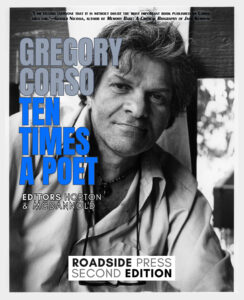 Gregory Corso: Ten Times a Poet returns in a striking new second edition from Roadside Press. Edited by Leon Horton and Michele McDannold, this tribute to one of the founding fathers of the Beat Generation features an all-new cover showcasing the iconic photography of Christopher Felver.
Gregory Corso: Ten Times a Poet returns in a striking new second edition from Roadside Press. Edited by Leon Horton and Michele McDannold, this tribute to one of the founding fathers of the Beat Generation features an all-new cover showcasing the iconic photography of Christopher Felver.